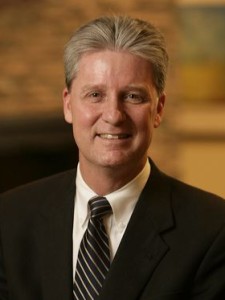 Mark Dixon, president of the Mark Dixon Group, LLC, shared with me his passion for the field of healthcare and his thoughts about the impact that it can have on a community; “The fruits of our labor are just so amazing for people, they allow us to actually improve those communities that we work in and do good things for people.”
Mark Dixon, president of the Mark Dixon Group, LLC, shared with me his passion for the field of healthcare and his thoughts about the impact that it can have on a community; “The fruits of our labor are just so amazing for people, they allow us to actually improve those communities that we work in and do good things for people.”
Dixon related a story from early in his career when he worked on a year-long project to put in place a heart transplant and artificial heart implant program at Abbot Northwestern, a part of the Allina Health System of Minnesota:
“I will never forget the evening when we did our very first heart transplant; I was down in a viewing area where we had it videoed in from the operating room, and I remember watching the new heart go into this gentleman who previously couldn’t even brush his teeth in the morning without becoming exhausted. To sit there, and to watch that new heart being built into his chest and all of a sudden to see that heart start beating on its own, bringing new life to that man and to his family—wow, that’s why I do this. We changed someone’s life.”
Dixon acknowledged that of course a heart transplant is a very dramatic example of the positive impact of healthcare, but it is just one out of a million other, less dramatic but equally important ways that healthcare impacts people and communities.
Several of the healthcare organizations Dixon has worked with have worked hard to improve the surrounding communities—something that Dixon feels should be a priority for every healthcare organization. Often these efforts are focused in areas that fall outside of healthcare, including working to address poor housing, crime rates, environmental concerns, and job initiatives. He explained how in poor communities, preventative healthcare is very low on most people’s list of priorities—they first have to worry about where they’re living and what they’re going to eat and how they will stay safe —only then can they turn their attention to improving their health through immunizations and other preventative care. Dixon stresses the critical importance of community leaders communicating and working together to make these improvements; only through this kind of joint effort can healthcare organizations really make a lasting difference in a community.
Dixon went on to say that early in his career he heard a phrase that has stuck with him throughout his life: “Patients are the reason we exist. That’s what we are there for in healthcare leadership. It’s not to make a return, not just to provide satisfaction. We are there to serve our patients.” Sometimes in order to make a lasting positive impact, that service must extend outside of hospital or clinic walls.
Dixon closed our interview with this reminder to all current and future healthcare leaders: “We need to fix the broken system that delivers average care at higher cost. We need to focus on serving patients. We need to create a health system that will be there for our kids, and our kids’ kids.”
